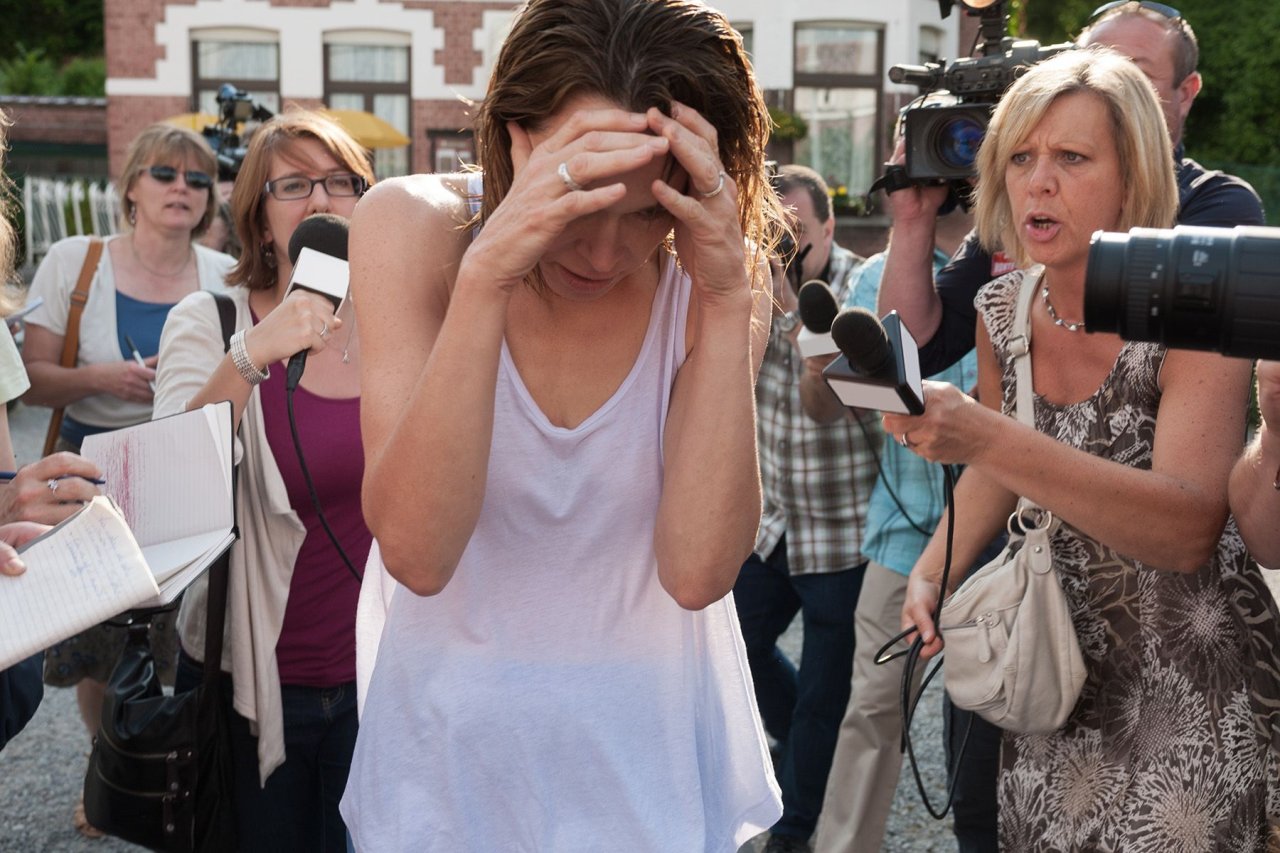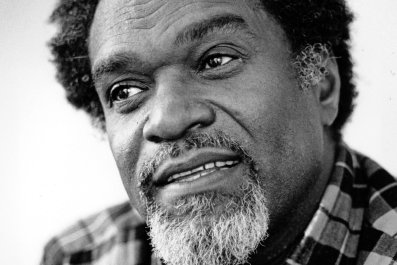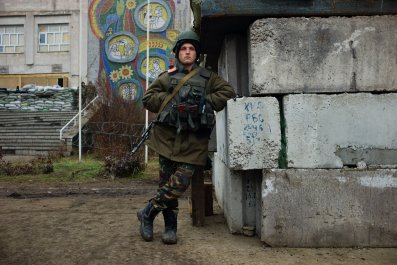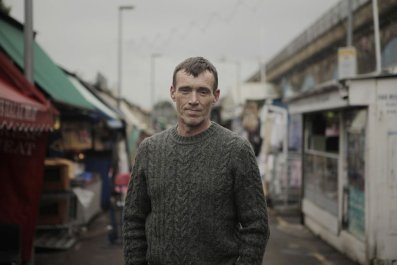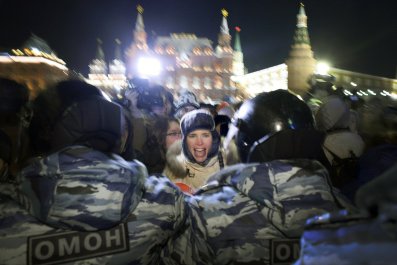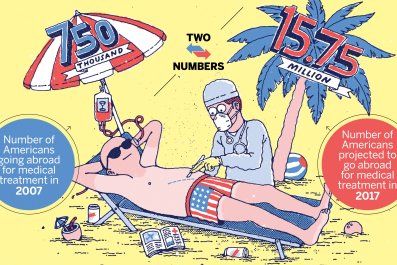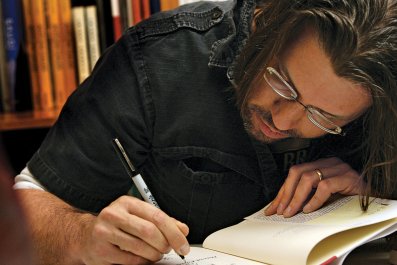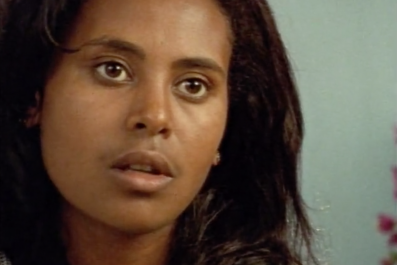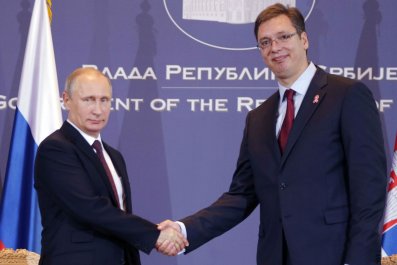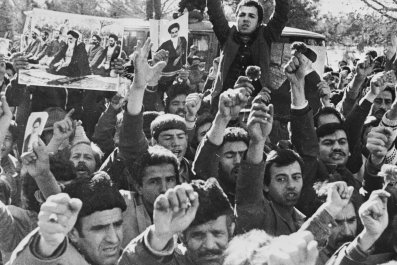"What you have seen, no father should ever see," French detective Julien Baptiste (Tcheky Karyo) tells Irish father Tony Hughes (James Nesbitt) about halfway through Starz's mystery series The Missing. He's referring to a glimpse caught on video of Hughes's 5-year-old son Oliver, who disappeared in a small town in France eight years earlier—a terrifying image that confirms the father's suspicion the boy was abducted and may still be alive—but he might be speaking for the audience that remained terrified and tantalized throughout the eight-part series (which has been nominated for a Golden Globe).
Now imagine how the actors felt. Nesbitt and Frances O'Connor, who plays the boy's mother, Emily, are both parents and lived with the story and their characters' anxieties for five-and-a-half months. "As an actor, even when you are taking on an emotionally demanding role, you get the script and the schedule and you'll say, 'In two weeks that's going to be a tricky time or a difficult week,'" says Nesbitt. "With this, Oliver goes missing right away; it meant that you had to be in the position to be going to those places almost every day."
The Missing (written and produced by brothers Jack and Harry Williams, and directed by Tom Shankland) spools out over two time periods: in the summer of 2006, when the boy disappears, and the winter of 2014, when Tony returns to the fictional town of Chalons Du Bois seeking the truth. He has remained obsessed (some might say unhinged), while Emily is the parent who has ostensibly moved on and accepted her loss. Though both had to remain close to the emotion at the heart of the story. "I thought I would use my own daughters as the tool to get to the lonely and dark and desolate places, particularly in the aftermath of Oliver's disappearance," says Nesbitt (Bloody Sunday, Waking Ned Devine). "What I discovered unfortunately is you can't really do that. If you try and locate the notion of that happening to your own, there's a distinct self-defense mechanism which throws up these shutters. You're disallowed from going there."
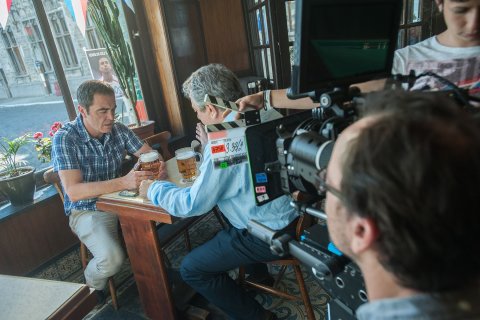
O'Connor, who was also nominated for a Golden Globe for her performance, had similar problems trying to use her 9-year-old son as a touchstone for Emily's grief. "That's a long time to sustain that kind of thought," she says by phone from her native Australia. It helped that during the week they were somewhat isolated shooting in Brussels (which subbed for France) and she got to return to her family in London on the weekends.
A more concrete challenge was playing the couple in two different eras. They filmed the 2014 sequences first, meaning the actors got to know each other and build a strong relationship with the international cast and crew and relied in part on wardrobe and makeup to convey the passage of time. "Nothing bad had ever happened to 2006 Emily," says O'Connor (Mr. Selfridge). "She was someone who'd had quite a sheltered life; [she'd been] a single child and Tony was one of those guys who looked after her and did everything for her." Her hair was fair and her feelings are on the surface. "In 2014 I wanted her to be really structured; changing her hair, and her clothes are very structured… it's a much more grown-up, contained [look]; she's holding cards very close to her. She's not harsh, but there's a brittleness to her."
O'Connor knew that audiences would react negatively to a mother who seemed to be over the loss of her child, and one of the show's dynamics is that tension created by our contrary expectations: We profess admiration for the single-minded parent keeping a lonely vigil, like Tony, but applaud the Oprah-esque notion of closure Emily seems to embody—at least at first.
"I knew there would be a certain amount of judgment toward Emily at the start, but, because I knew the endgame, I tried to play it quite strongly in that direction," says O'Connor. And as the plot thickens, and suspicion about the boy's disappearance is spread among the townsfolk, the police searching for him and even the parents, nothing is quite as it seems—including Emily's reserve. "It's always a bit scary," she says with a laugh, about playing this ambiguity. "Actors like to be liked. But you have to tell the story."
Nesbitt, playing the fixated father, may have had the straighter path. He tried to live his character off-screen, at least during the winter months. "Right from the beginning Tom [Shankland] and I made a kind of pact that I would never really not be anyone but Tony throughout the time," says Nesbitt, speaking from his home in Northern Ireland. "I lived in an apartment away from the cast and crew, I kind of turned the apartment into a Tony-like den. I had the art department give me everything Tony would have, all the police records, the newspaper clippings, I had little items of Oliver's stuff.… Now admittedly, I was going to and from work in a very nice car, but when we were shooting 2014 I would sort of match the psychological state of where Tony was."
British audiences reacted strongly to the series (it ran first on BBC One, concluding in mid-December) with some critics complaining the finale didn't offer enough (yep) closure. (Starz has announced a second season, with a new cast and case, that the Williams brothers will again write and produce.) Nesbitt, who was also starring in Danny Boyle's cop series Babylon (beginning on the Sundance Channel this month) between Missing shoots, takes it in stride. "When people live with something for so long, they are bound to react," he says. And we're not talking Lost here: Those who follow this season to its final episode, airing on Starz January 10 (with the full season available on Starz Play and On Demand), will be left with questions but they're the sort we have to ask ourselves. When has a parent done all that he can? When is it time to let go?
Perhaps as an Irish Protestant, Nesbitt is more comfortable with the idea of insoluble problems. "I was 7 years old when Bloody Sunday happened," he says, referring to the 1972 protests in Derry when British soldiers killed 26 Irish Catholic demonstrators, the source for Paul Greengrass's 2002 film. "That was the watershed that put England and Ireland at war for 30 years. We were 26 miles away in Ireland at the time: [part of the] absurd accident of birth that determined whether or not you were going to be involved or distanced, and you wanted to remain distant. The rest of the world was telling you you lived in a terrible place, and you loved it. It's a complicated place to live."



